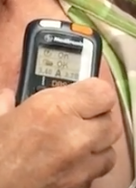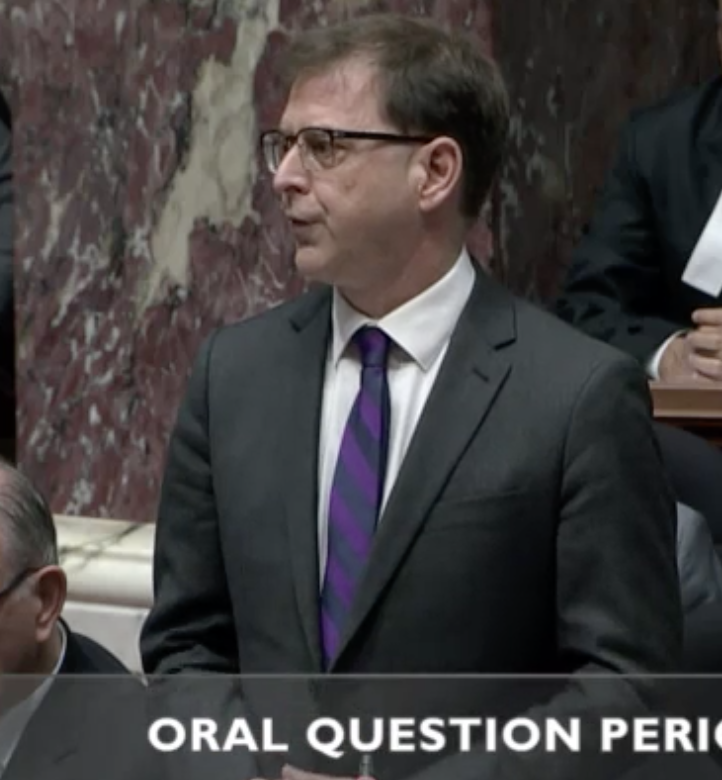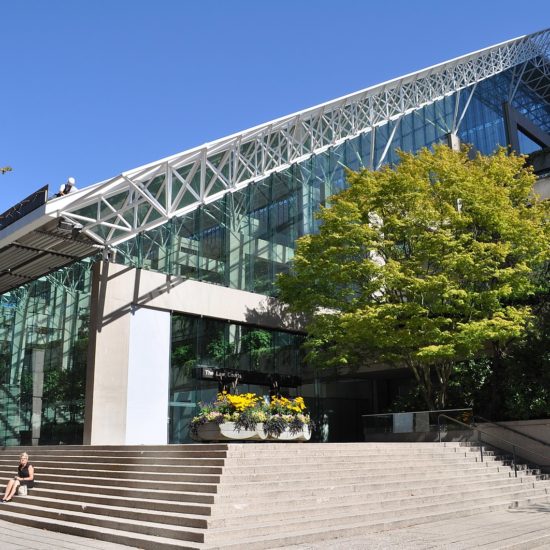
Bob Mackin
Tom Armour is waiting for the call that will help change his life.
If he lived in Alberta, Armour would have already had deep brain stimulation (DBS) surgery to treat Parkinson’s Disease. But, because he’s a British Columbian, the wait continues.
“It’s very frustrating that nothing has happened since I was diagnosed and waited for surgery,” said Fort Langley’s Armour in an interview.
The degenerative disease causes a loss of control of movements, body and emotions. But a deep brain stimulation implant can treat those symptoms and vastly improve the quality of life.
Armour was diagnosed eight years ago when he was 58. He sold his steel erection business, Armour Installations, to focus on his health. It took over three years for him to see neurosurgeon Dr. Christopher Honey, B.C.’s only trained and funded DBS specialist. It will be two years this December since he was deemed a suitable candidate for the complicated surgery.

Brain stimulation device for patients who have undergone deep brain stimulation surgery (Parkinson B.C.)
By comparison, Alberta has two qualified neurosurgeons and a six-month wait list. Ontario’s wait list is two-to-three months.
Honey does approximately 40 of the surgeries a year. Honey-trained Dr. Zurab Ivanishvili at Royal Columbian Hospital is ready to go, but awaits funding. The Parkinson Society British Columbia wants at least two more surgeons recruited for B.C., a reciprocal agreement with Alberta, Saskatchewan and Ontario to send B.C. patients there and new technology and techniques to reduce the surgery time
The society set-up a Change.org petition that has nearly 5,000 supporters. Because it is an electronic petition, it will not be admissible in the Legislature, but it can still be sent to Health Minister Adrian Dix’s office. The petition website shows BC Liberal MLA Tom Shypitka with patient Terry Hume, who demonstrates the value of DBS, before and after activating the pacemaker-like stimulator.
In Question Period on Oct. 25, BC Liberal opposition members Norm Letnick and Greg Kyllo challenged Dix to accelerate access to DBS. Dix admitted the B.C. government is falling short.
“There are, in fact — and have been over the last four or five years — significant and growing wait times for DBS interventions, and it’s very important,” Dix said. “A lot of us in our families and a lot of us as constituents know people who are dealing with Parkinson’s disease. It’s a very serious situation, and DBS, for many of them, is helpful. In fact, the range of people that it can help has increased over that time. In this year, we’ve increased the number of interventions scheduled by 50 percent. That number will not be adequate, I think, to reduce the wait times, but it makes the situation better than it was before. It’s gone from 23 interventions to 36 interventions this year.”

Health Minister Adrian Dix (Hansard)
Dix said it puts the health care system in jeopardy if only one person in B.C. can perform the surgery. “The health authorities, both Fraser Health and Vancouver Coastal Health, are working on that issue right now… We’re working on the issue of expanding access to those surgeries now, and we’ll have more to report in the near future.”
Armour said DBS can benefit the government in the long run, through fewer visits to hospitals and by helping Parkinson’s patients remain productive.
“It can save them a fortune,” Armour said. “The cost of doing the surgery and the followup, I could keep working another 10 years. That’s going to more than pay for it.”
This is not the first uphill battle for Parkinson’s patients with the B.C. government.
In February 2017, the BC Liberal government finally relented and announced it would fund Duodopa, the trade name for the levodopa/carbidopa intestinal gel (LCIG) to treat people with the most severe symptoms.
Documents obtained by theBreaker showed how Health Minister Terry Lake, assistant deputy minister Barbara Walman, drug intelligence executive director Eric Lun and special authority director Susan Bouma thwarted efforts to fund about 10 patients needing the $60,000-a-year drug.
“Given the fiscal pressures affecting PharmaCare and the broader health system, the program has limited capacity to expand coverage for new benefits and must be very selective in that regard,” Lun wrote to Jean Blake, the CEO of Parkinson Society B.C. on May 9, 2016. “Due to the extremely high cost of this product, coverage requests are not being considered, including exceptional cases.”
Dr. Martin McKeown, the UBC Chair in Parkinson’s Research, wrote to Bouma in June 2016, a year after writing to Lun on the same topic. “If our patient were a resident of Alberta, Manitoba, Ontario, Quebec or Yukon, my patient would successfully gain public reimbursement for LCIG.”
Support theBreaker.news for as low as $2 a month on Patreon. Find out how. Click here.











